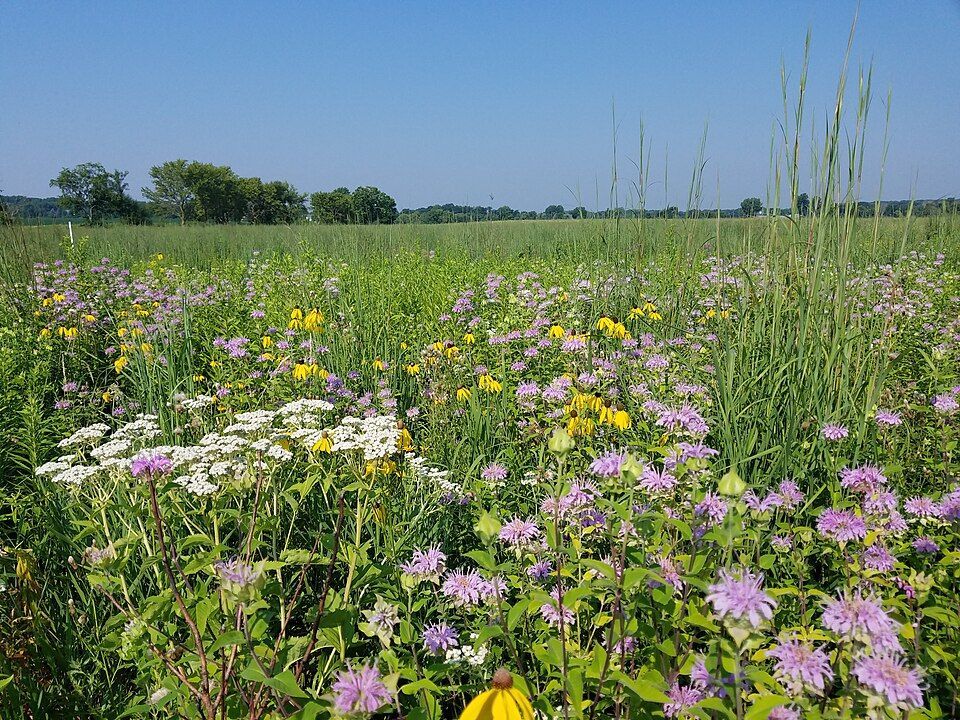FIELD NOTES BLOG
Getting Kids Outside!
Encouraging children to spend time outside is essential. However, this is not a new concept; in fact, many people are already aware of the benefits of kids spending time outdoors! Examples, including getting vitamin D from sun exposure, exercise, and educational opportunities, have been highlighted in articles that urge parents to take action. But many more reasons can be used to convince further nature skeptics. Spending time outside is great for fostering curiosity and autonomy in children. These are both valuable traits that kids carry with them into adulthood. Going outdoors also builds resiliency and critical survival skills. Who knew that letting kids play outside can help improve their safety! Finally, allocating some of a child’s day to being outside can further connections with the real world, such as deepening understanding of a sense of place, and relationship development with food systems.
Letting children play outside fosters curiosity and can improve their autonomy
All children go through the notorious ‘asking questions about everything’ phase. The constant “why” or “how” can be exhausting, but this is when they are learning about everything around them and their place within it. Being in nature is the perfect opportunity to connect these endless questions to their own lives and help guide them through this stage of finding their place. For example, The Nature Conservancy states that ‘visiting a river or stream is an opportunity to not only teach children about fish habitat but to explore where their drinking water, one of the most precious resources in life, comes from.’ Curiosity isn’t just helpful during childhood; it is an essential skill for learning, trying new things, and bringing excitement to everyday life. These are traits that adults use all the time as well!
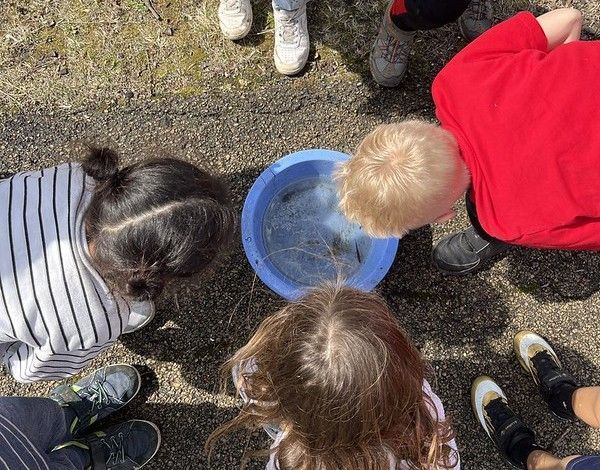
The “why” and “how” questions also often (if not always) come with “can you help me with….” questions during this stage of childhood development. Not only are they learning about the world around them, but they are also trying to understand how to navigate it. This process can be challenging at times for parent and child. One way to support children throughout this journey is to let them play outside! Allowing kids to explore in natural settings can offer opportunities for decision-making and problem-solving. Things like imaginative play, risk assessment, and boundary setting are activities they tend to do outside anyway, without any formal instruction. According to Alex Barrable, a lecturer/researcher at the University of Dundee, ‘children thrive in environments where they are given the time to play on their own terms. Some of the most common ways that children assert their autonomy are by claiming their own space.’ Allowing children to create their own space is something we do here at Severson through our shelter-building programs! It’s always inspiring to see them setting their own rules and telling their own story in the fort space they have created all by themselves.
Time in nature can help kids build resilience and gain survival skills
Nature is unstructured. This can be unsettling for children and even for some grown-ups, too. However, this lack of structure is often one of the best opportunities for natural resilience building. Resilience is the essential life skill of bouncing back or adapting to difficult challenges, an ability people use throughout their lifetime. Dr. Breanna Gentile of the Center for Youth Wellness expresses that ‘Outdoor activities often come with unpredictable elements—weather changes, rough terrain, or unexpected obstacles. These experiences teach children to adapt, persevere, and stay positive in the face of challenges.’ Next time it starts raining during a walk, show children that plans are not ruined and rainboots are the perfect solution for the occasion. Resiliency helps children prepare for facing future challenges and bounce back when life gets a little tough!
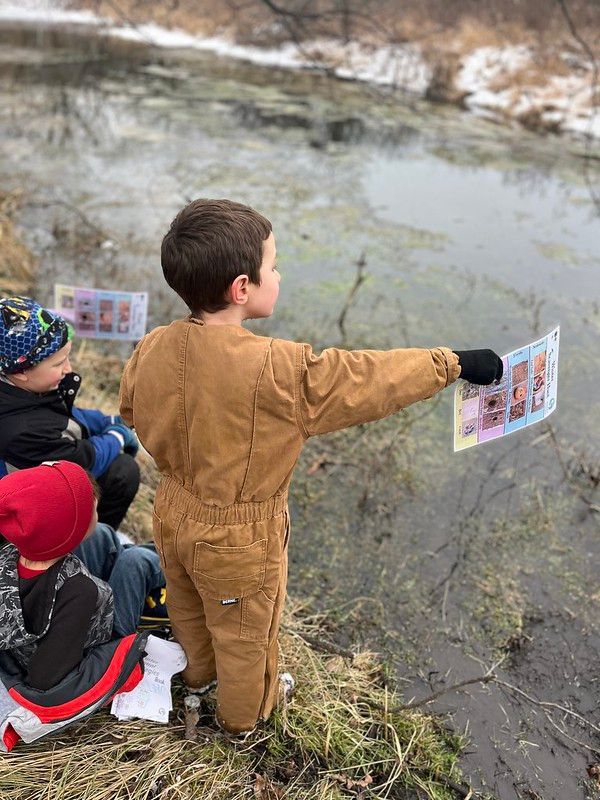
The unexpected difficulties and weather changes offer opportunities for resilience, but also moments to put survival skills to the test. Preparing children for these scenarios by spending time outside with them can help them feel more secure and equipped should survival skills ever need to be utilized. Ellen Nesbitt of Wildings Forest School says, ‘While we hope our children never find themselves in a true survival situation, having the skills to handle emergencies can be life-saving.’ Teaching children things like emergency response, first aid, navigation, and foraging can help prepare them for potential unforeseen circumstances in the adventures that await them.
Spending time outdoors can help children deepen their connection with the world and form a relationship with the food system
Children have a narrow view of the world. They can’t yet conceptualize global notions, distant relations, or future generations. Expanding their understanding of their little world by taking them outside may be one of the best ways for them to form valuable connections with the land. Learning the names of trees, exploring animal habitats, or investing time in caring for the earth are vital ways we can help them appreciate the environment and understand the nature they live in. Forming that connection while young is also important for future-focused conservation and preservation. As said by Claire McCarthy, MD at Harvard Health ‘The future of our planet depends on our children; they need to learn to appreciate it.’
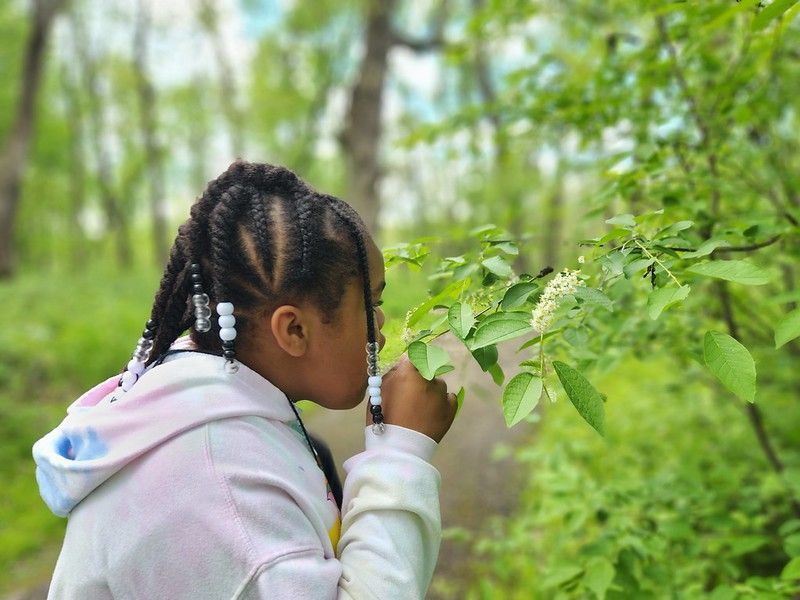
Speaking of the world around us, ‘48 percent of Americans say they never or rarely seek information about where their food was grown or how it was produced, according to Alliance for Science. Adults have lost their connection to the food system and the story behind what they eat. Knowing the facts behind your food is important for making ethical decisions, protecting the environment, and keeping your family safe. A great time to develop this habit is while kids are young and absorbing everything about the world around them. For example, educating children about the edible local flora and fauna might help them feel more connected to the foods they eat at home. It may even help them feel more empowered to make their own choices related to food sustainability and longevity.
Play Outside at Severson Dells!
Whether it’s playing outside, taking a walk, or even pointing things out during a drive, there are so many ways to get kids more involved in the outdoors. But don’t fear, if there are barriers such as time, lack of nature, or even an ick related to bugs, just bring your kiddos over to Severson Dells! We have plenty of free or paid programming activities for your child, and as you would guess, all of them involve spending time outside.
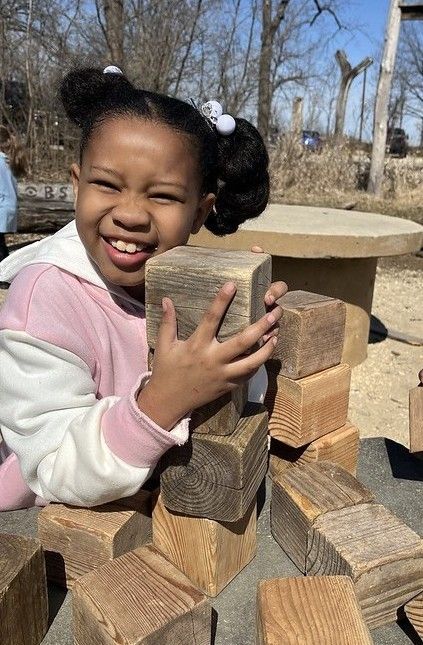

RECENT ARTICLES

